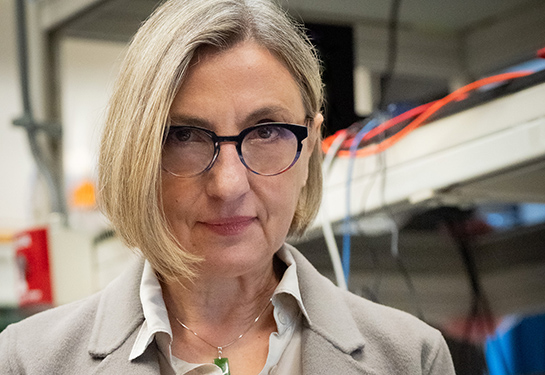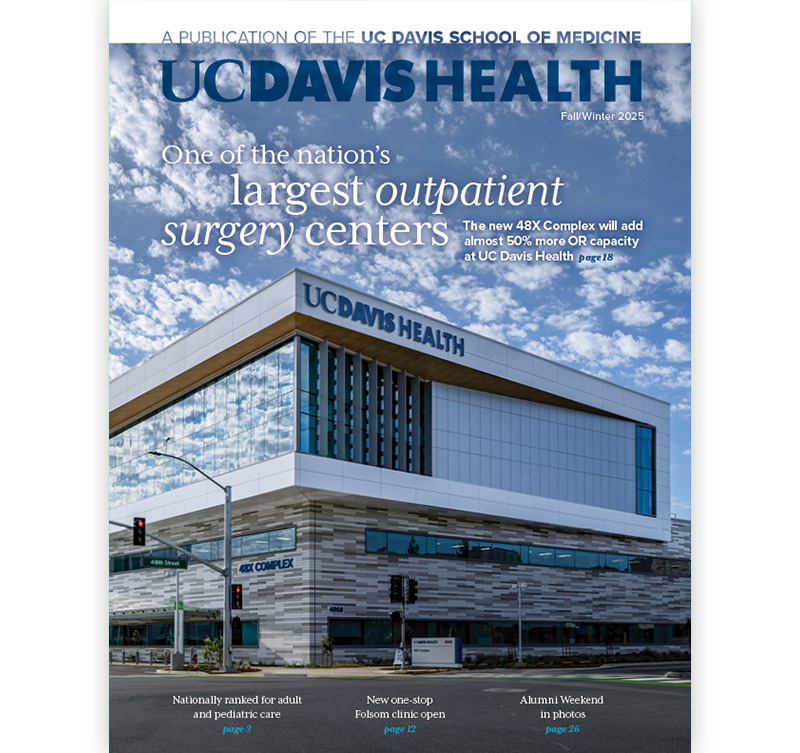Environmentally sustainable emergency medicine
For several years, the Department of Emergency Medicine at UC Davis Health has been working to reduce waste and minimize its environmental impact. The goal is to provide patients with emergency care that is environmentally conscious and sustainable.
Their efforts are driven by the need to address the climate crisis, described in recent studies as the biggest global health threat of the 21st Century.
“Awareness of the health impacts of climate change among health care professionals is increasing internationally and it is imperative we make the development of sustainable treatment pathways a key priority,” said Nathan Kuppermann, the Bo Tomas Brofeldt Endowed Chair of Emergency Medicine. “As a national leader in sustainable practices, UC Davis Health is committed to doing right and establishing sustainable practices across all areas of our health system.”
Sustainable emergency care
The sustainability initiatives in the Emergency Department were spearheaded by Kupperman, along with David Barnes, health sciences clinical professor. They include:
- Implementing reusable (washable) surgical and exam gowns, which eliminates single-use plastic gowns that end up in landfills and actually require more water to manufacture than cloth gowns
- Reducing paper usage by prescribing medications electronically, converting all printers to double-sided printing, and creating a paperless electronic medical record portal for residents to log patients, procedures, and patient follow-ups
- Partnering with Second-Breath, a UC Davis-based non-profit organization which collects unused medical supplies and distributes them to areas of need, avoiding the landfill and helping underserved communities
- Eliminating usage of blue surgical wrap, which has only limited recyclability, and transitioning surgical instrument trays to reusable aluminum containers
- Switching to reusable electrocardiogram leads
“As emergency clinicians, we are uniquely poised to recognize the serious impacts climate change has on the health and safety of the populations we serve,” Barnes said. “Climate change is an existential threat to humanity. It may seem like a far-off future problem to some, but the negative health outcomes are unfolding right in front of our eyes, from heat illnesses due to a warming climate, to water-related diseases due to lack of clean drinking water, to more cases of asthma due to air pollution. By focusing on sustainability, we can build resilience against climate change and work to protect the health of our patients, our community, and the planet.”
Sustainability behind the scenes
The department’s sustainability efforts extend beyond the Emergency Department itself. Long before the pandemic, employees started with simple, faculty-level interventions such as purchasing cutlery, flatware, cups, and a dishwasher for their academic office. This encouraged people to bring their own food from home and reduced non-recyclable waste.
For meetings, employees also try to choose food vendors who use sustainable packaging like compostable utensils and food containers. The department has also encouraged physicians to choose vegetarian options at gatherings, and their academic offices and central spaces are equipped with motion sensors which shut off lights in unoccupied rooms.
This year, UC Davis Health was recognized by Practice Greenhealth as a national leader in environmental sustainability. The health system was named one of the Top 25 Environmental Excellence award winners, the highest honor awarded by Practice Greenhealth, which is the nation’s leading organization dedicated to environmental sustainability in health care.
UC Davis Health was also honored with the “Greening the OR Recognition Award.” This recognition is designated for hospitals that have made strides in improving environmental performance in the operating room.
In addition, UC Davis Health received six designations in the Circles of Excellence, which honors up to 10 of the highest performing hospitals nationwide in various areas of sustainability. The six areas in which the health system was recognized include food, sustainable procurement, water, transportation, climate, and green building.





